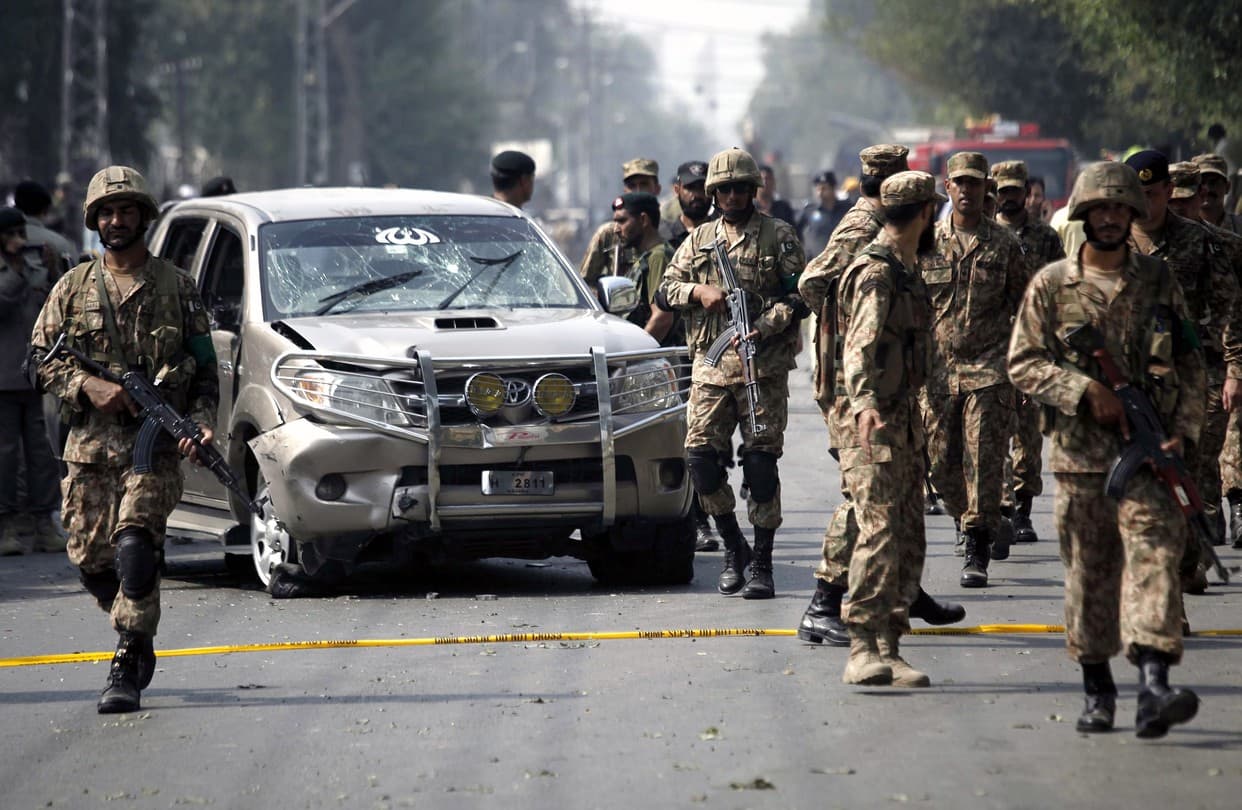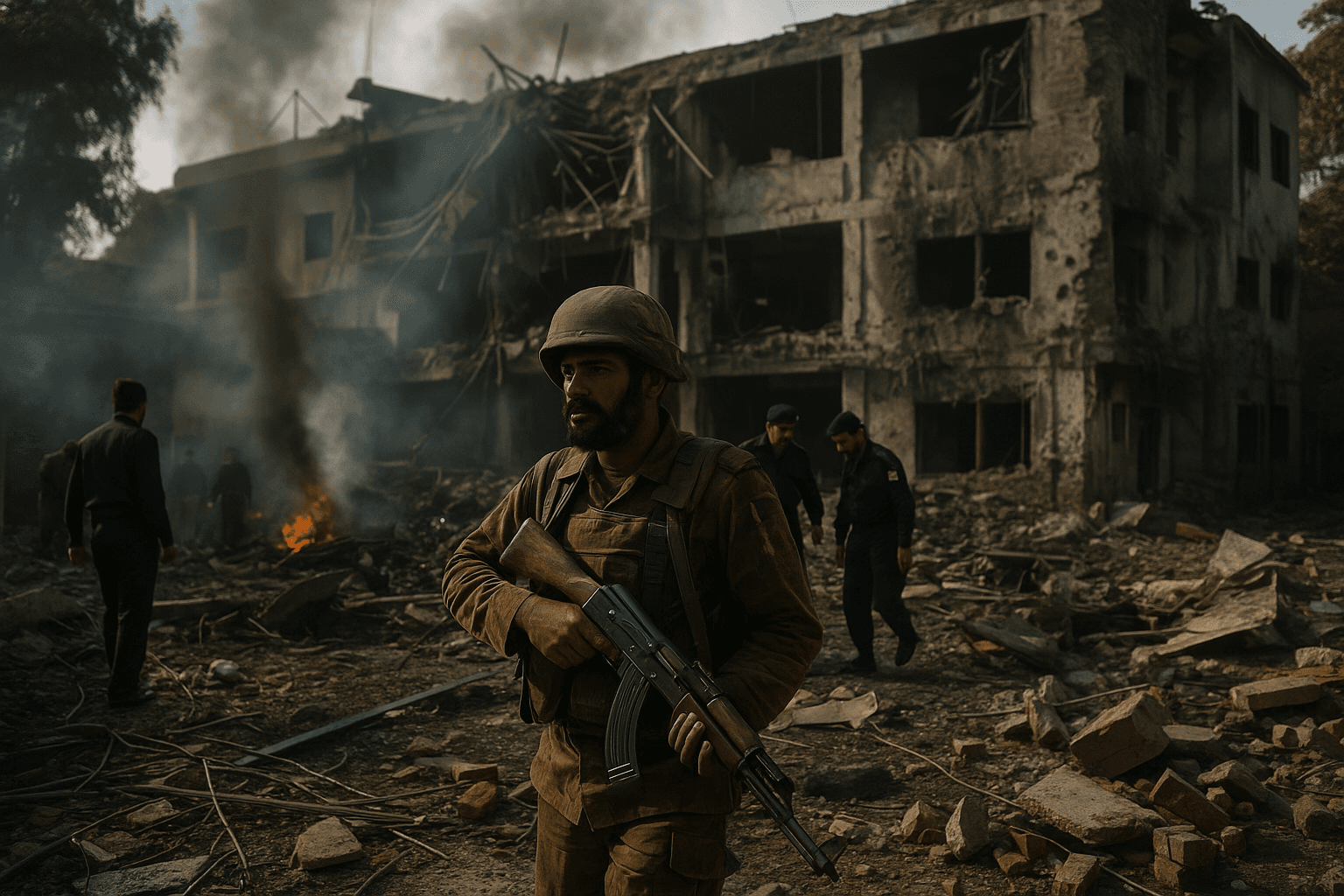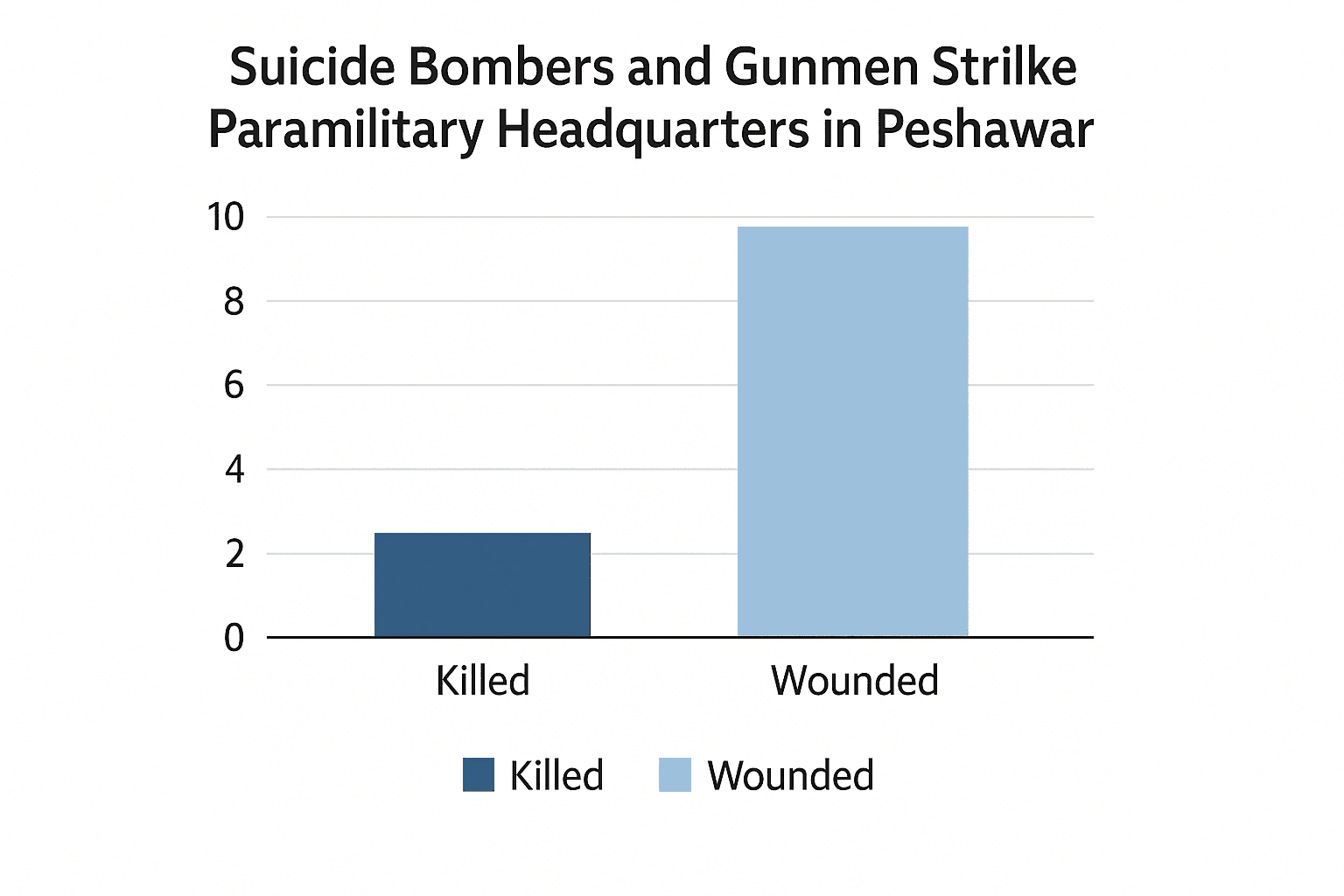Suicide Bombers and Gunmen Strike Paramilitary Headquarters in Peshawar
Attackers including suicide bombers struck a Frontier Constabulary complex in Peshawar on November 24, killing at least three people and wounding others, authorities said. The assault, carried out in multiple stages, underscores the persistent threat of militant violence in northwestern Pakistan and could reshape local security operations.

At least three people were killed and others wounded when attackers including suicide bombers assaulted a Frontier Constabulary paramilitary complex in Peshawar on November 24. Local security and rescue teams mounted a response to a multi stage attack that authorities said involved both explosions and armed gunmen inside the compound. Officials were still clearing sections of the facility late into the operation and treating the injured, and they cautioned that casualty figures could change as operations concluded and investigations began.
The Frontier Constabulary facility targeted in the attack serves as a regional hub for paramilitary operations along Pakistan's northwestern frontier. The complex has been the focus of security posture and logistics for operations in districts that have experienced recurring militant activity. Witnesses described a chaotic scene as security forces isolated parts of the compound and medical teams moved casualties to nearby hospitals.
National and provincial authorities dispatched additional security reinforcements to Peshawar following the assault, and rescue services worked to account for personnel and civilians in affected areas. Hospitals in the city received wounded, though officials provided only provisional numbers as the situation remained fluid. Emergency responders focused on evacuating noncombatants from the compound and securing the perimeter to prevent further infiltrations.

The attack fits into a broader pattern of militant violence in northwestern Pakistan, where decades of conflict, porous borders, and complex local dynamics have periodically produced high profile strikes on security installations. In recent years the region has seen intermittent surges in violence that have prompted major military operations, shifts in intelligence priorities, and sensitive diplomatic negotiations with neighboring states over cross border movement and counterterrorism cooperation.
International wire services cited initial accounts from officials on the ground and warned that the casualty toll could rise as authorities completed clearance operations and opened formal investigations. The unfolding inquiry will aim to establish the attackers' identities, methods of penetration, and whether any local networks facilitated the assault. Security analysts say such determinations are essential to preventing further strikes and to calibrating the response of paramilitary forces and civilian authorities.

Beyond immediate operational concerns, the assault has potential political and humanitarian consequences. It underscores the vulnerabilities of security infrastructure in volatile areas and will likely intensify public debate in Pakistan over the balance between offensive security measures and protections for civilians. The incident may also affect cooperation with international partners focused on regional stability, as any escalation in violence can have cross border implications and complicate diplomatic efforts.
Authorities in Peshawar continued to clear the compound on November 25 and treat the injured. Investigations were underway to determine the full scope of the attack and to identify any additional threats in the area.


